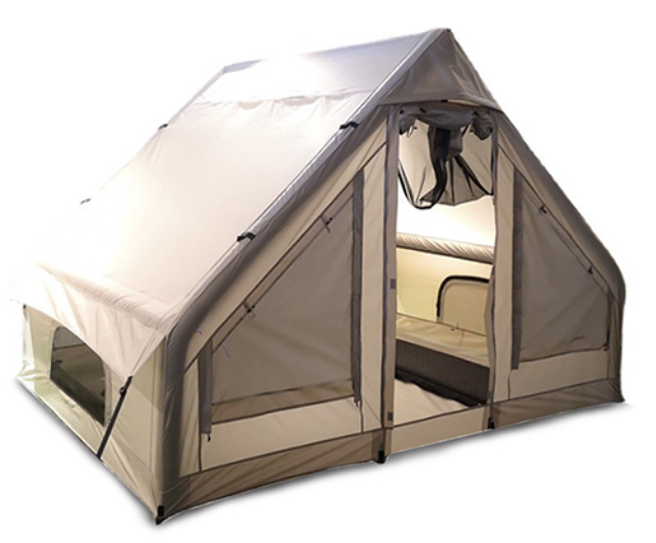- E-mail: info@sundaycampers.com
- Tel.: +86 15801504548
The lifespan of a cotton canvas tent when used outdoors can vary depending on several factors. Cotton canvas tents are known for their durability and longevity, but their lifespan is influenced by factors such as the quality of the canvas, care and maintenance, frequency of use, and exposure to environmental conditions. With proper care, a cotton canvas tent can last for many years.
The quality of the canvas material used in the tent construction is a significant factor in determining its lifespan. High-quality cotton canvas with a tight weave and a sufficient weight, such as 10-ounce or 12-ounce canvas, tends to be more durable and long-lasting. Thicker canvas provides better protection against wear and tear, abrasion, and UV damage. It is advisable to invest in a reputable brand or supplier that offers canvas tents made from high-quality materials.

Proper care and maintenance play a crucial role in extending the lifespan of a cotton canvas tent. Here are some key points to consider:
Regularly clean your tent to remove dirt, dust, and stains. Use a soft brush, mild soap, and lukewarm water to gently scrub the canvas. Avoid using harsh chemicals, bleach, or abrasive cleaners, as they can damage the fabric. Thoroughly rinse the tent and allow it to dry completely before storing.
Ensure that the tent is completely dry before storing it. Moisture left on the canvas can lead to mold, mildew, and fabric deterioration. If your tent gets wet, set it up in a well-ventilated area and allow it to air dry completely.
Store the tent in a dry, cool, and well-ventilated area. Avoid storing it in damp or humid conditions, as this can promote mold and mildew growth. Make sure the tent is completely dry before folding and storing it to prevent odors and fabric damage. Avoid tightly compressing the tent, as it can cause creases and weaken the fabric over time.
Over time, the waterproofing properties of the canvas may diminish. Consider applying a waterproofing treatment or reapplying a waterproofing product to the tent periodically to maintain its water resistance. Follow the manufacturer's instructions for the specific product you choose.
UV rays from the sun can gradually degrade cotton canvas fabric. While cotton canvas has inherent UV resistance, prolonged exposure to intense sunlight can still weaken the fabric over time. Consider using a UV-resistant treatment or applying a protective tarp or cover when the tent is not in use to reduce UV exposure.
The frequency of use can affect the lifespan of a cotton canvas tent. If a tent is used frequently or for extended periods, it may experience more wear and tear. However, with proper care and maintenance, even heavily used canvas tents can last for many years.
The environmental conditions the tent is exposed to can impact its lifespan. Cotton canvas tents are more susceptible to mold and mildew if stored or used in damp or humid environments. Prolonged exposure to harsh weather conditions, such as heavy rain, strong winds, and intense sunlight, can also affect the fabric's integrity. Proper site selection, use of a groundsheet or tarp under the tent, and attentive maintenance can help mitigate these factors.
Regularly inspect the tent for any signs of wear and tear, such as small holes, tears, or damaged seams. Promptly repair any damage using suitable repair kits or professional repair services. Addressing minor issues early can prevent them from escalating and extending the overall lifespan of the tent.
The lifespan of cotton canvas tents when used outdoors can vary depending on factors such as the quality of the canvas, care and maintenance, frequency of use, and exposure to environmental conditions. With proper care, maintenance, and attention to the specific needs of cotton canvas tents, they can provide reliable shelter and last for many years of outdoor enjoyment.
If you want to know more information about cotton canvas tents, please contact us. We will provide professional answers.